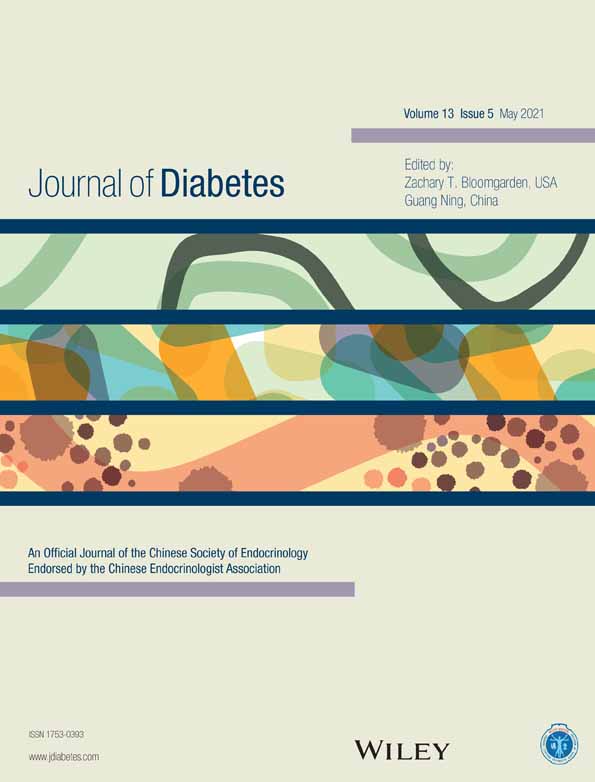Metabolic syndrome and clinical outcomes in patients infected with COVID-19: Does age, sex, and race of the patient with metabolic syndrome matter?
COVID-19患者的代谢综合征和临床结局:代谢综合征患者的年龄、性别和种族重要吗?
Abstract
enBackground
Metabolic syndrome (MetS) is highly prevalent worldwide, and its individual components obesity, diabetes, and hypertension have been identified as risk factors to develop severe coronavirus disease 2019 (COVID-19); however, data on MetS and clinical outcomes in COVID-19 are scarce. This study aims to determine association between MetS and severe disease outcomes, that is, mortality, need for mechanical ventilation, and intensive care unit (ICU) requirement among patients with COVID-19.
Methods
This is a retrospective multihospital cohort study on 1871 patients with confirmed COVID-19 diagnosis. Patient data including demographics, comorbidities, body mass index (BMI), smoking, laboratory data, and the clinical course of hospitalization were collected. Multivariable regression was performed adjusting for age, sex, race, insurance, smoking, and comorbidities.
Results
A total of 1871 patients (median age 66 [interquartile range, IQR 54-75]; 965 (51.6%) males; 1494 (80%) African Americans; median BMI 29.4 kg/m2 [IQR 25-35.8]; 573 (30.6%) patients with MetS) were included. Patients with MetS had increased mortality (odds ratio [OR], 1.40; 95% CI, 1.11-1.75; P = .004), higher ICU admission (OR, 1.68; 95% CI, 1.36-2.08; P < .001), and increased need for mechanical ventilation (OR, 1.90; 95% CI, 1.52-2.37; P < .001). Among individual comorbidities, diabetes had significant association with mortality (OR, 1.30; 95% CI, 1.05-1.63; P = 0.02), ICU admission (OR, 1.56; 95% CI, 1.27-1.93; P < .001), and need for mechanical ventilation (OR, 1.63; 95% CI, 1.30-2.03; P < .001).
Conclusions
MetS is a better prognostic indicator for severe disease outcomes in patients with COVID-19 than its individual components. Patients with MetS had significantly higher mortality, increased ICU admissions, and need for mechanical ventilation.
摘要
zh背景
代谢综合征(MetS)在全球范围内广泛流行, 其各个组成(肥胖、糖尿病和高血压)已被确定为COVID-19的危险因素, 然而, COVID-19中关于代谢综合征和临床结局的数据很少。本研究旨在确定代谢综合征与COVID-19患者的严重疾病结局(即死亡率、机械通气需求和重症监护病房(ICU) 需求)之间的关系。
方法
对1871例确诊为COVID-19的患者进行回顾性多医院队列研究。收集患者数据, 包括人口统计学、合并症、体重指数(BMI)、吸烟情况、实验室检查和住院的临床过程。对年龄、性别、种族、保险、吸烟和合并症校正后进行了多变量回归分析。
结果
共纳入1871名患者(年龄中位数66岁[四分位距(IQR) 54-75], 965名男性(51.6%), 1494名非裔美国人(80%), 中位数BMI 29.4 kg/m2[IQR 25-35.8], 573名(30.6%)为MetS患者)。MetS患者的死亡率增加(OR为1.40, 95%CI为1.11-1.75, P=0.004), ICU入院率高(OR为1.68, 95%CI为1.36-2.08, P<0.001), 对机械通气的需求增加(OR为1.90, 95%CI为1.52-2.37, P<0.001)。在个体合并症中, 糖尿病与死亡率(OR, 1.30, 95%CI, 1.05-1.63, P=0.02)、入住ICU(OR, 1.56, 95%CI, 1.27-1.93, P<.001)与是否需要机械通气(OR, 1.63, 95%CI, 1.30-2.03, P<.001)显著相关。
结论
与其单独成分相比, MetS是COVID-19患者严重疾病结局的更好的预后指标。患有代谢综合征的患者死亡率明显较高, ICU入院率增加, 并需要机械通气。
CONFLICT OF INTEREST
The authors declare no potential conflict of interest.
Open Research
DATA AVAILABILITY STATEMENT
The de-identified data that support the findings of this study are available from the corresponding author upon reasonable request and appropriate permission from the IRB.




